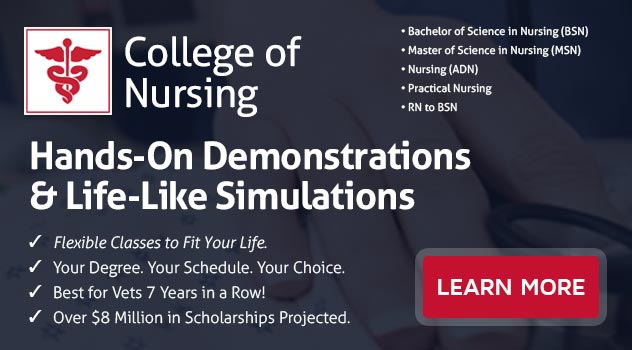I Want to be a Nurse: How Do I Get Started?
Everyone will need a nurse at one point or another in their lives.
Nurses are among the first faces babies see when they are born and they are the caring professionals who help make sure the final days of life are as comfortable as possible. And they're present for just about everything in between--ear infections, bumps, bruises, broken bones, annual checkups, and the unexpected trips to the ER.
And in addition to needing nurses, people really seem to like them, too. This year, for the 17th year in a row, nurses topped Gallup's poll of the most trusted professions in the country.
That's impressive.
And it might explain why you're interested in joining this noble profession. Or maybe you're just one of those special types of people who want to care for people in need.
Either way, your goal is within reach--even if you don't have any previous experience in healthcare. Here are some suggestions to help you get on your way to becoming a nurse!
Step One: Understand the Role
Not only are nurses a critically important part of the country's healthcare system, but they're jobs are also incredibly compelling.
But don't let TV shows like Nurse Jackie and Grey's Anatomy fool you, a career in nursing isn't filled with non-stop drama, gossip, and compelling backstories.
About the only thing Hollywood gets right about nurses is that most of them work in general medicine and surgical hospitals. Their role is to work with people who are ill or injured to help them recover.
It's a big job that can include everything from monitoring and recording patient behavior to performing physical exams to administering medications to treating wounds to educating patients about how to live long lives that are filled with health and happiness.
Once you understand the roll of the nurse, you can decide if it's something you can see yourself in this type of career.
Step Two: Plan Your Education
As you can imagine, you can't just walk into a hospital, throw on some scrubs and call yourself a nurse. Before you can do that, you'll need to complete a formal education program and earn a diploma.
The good news is there are programs out there that make it possible for you to earn an Associate Degree of Nursing in as little as 18 months. That means that you could be working in a hospital in less than two years.
But first there's a lot to learn.
Because nurses are such indispensable members of patient care teams, they have to know a lot about a lot. That's why nursing school curriculum tends to be so far-reaching. You will typically learn about:
- the concepts of nursing
- newborn nursing
- medical surgical nursing
- anatomy and physiology
- psychology
- mental health
- child nursing
- nutrition
- pharmacology
- microbiology
- culture and diversity
Then you'll probably also study and develop the skills it takes to succeed as a nurse, such as the ability to calculate dosages, how to work in a lab, how to communicate with doctors, other nurses, patients, and people from all walks of life, and how to make smart decisions using critical-thinking skills.
You should study with instructors who are connected to the profession. So you could get real-world experience in labs. And you should also have some fun.
For many people, going to nursing school is one of the most exciting and rewarding experiences in their lives. It's also life-changing, because going to nursing school will prepare you for a long and successful career as a nurse.
Step Three: Find a Job
As you've already learned, most nurses work in hospitals that are located in towns and cities across the country. But nurses can also be found in schools, outpatient care centers, mental health organizations, the military, nursing care facilities, home healthcare businesses, and even working for large corporations.
They are in high demand (after all, everyone will need a nurse at one point or another).
According to the United States Department of Labor Bureau of Labor Statistics, employment opportunities for registered nurses is expected to grow by a whopping 15 percent through 2026. That's a lot faster than the national average for all occupations and good news for you.
So once you have earned your degree, you'll be qualified to sit for the state's nursing exam. Once you have passed the exam you could be ready to find a job because you'll have the credentials, knowledge, skills, and confidence it takes to succeed as a nurse.
Ready to Follow Your Dreams?
If you have always dreamed of becoming a nurse but didn't know where to begin, you have come to the right place.
Get in touch with ECPI University today and ask about our Associate of Nursing Degree (ADN) program. At an accelerated rate, you could graduate sooner and start studying for your NCLEX-RN faster. For more information, connect with a friendly admissions advisor today.
It could be the Best Decision You Ever Make!
DISCLAIMER – ECPI University makes no claim, warranty, or guarantee as to actual employability or earning potential to current, past or future students or graduates of any educational program we offer. The ECPI University website is published for informational purposes only. Every effort is made to ensure the accuracy of information contained on the ECPI.edu domain; however, no warranty of accuracy is made. No contractual rights, either expressed or implied, are created by its content.
For more information about ECPI University or any of our programs click here: http://www.ecpi.edu/.




